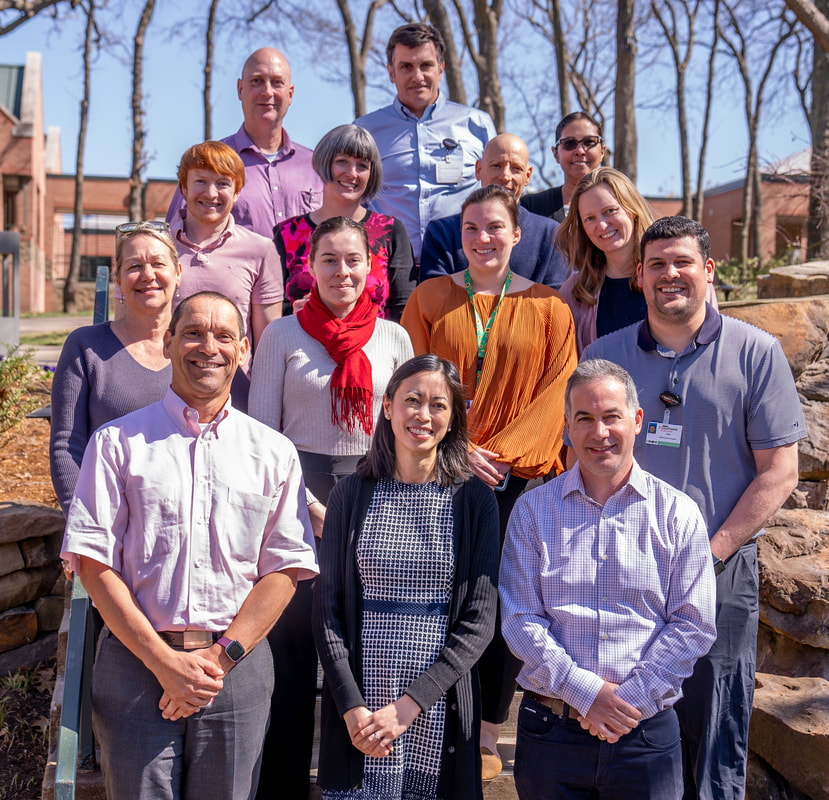|
Dr. Karmel Choi - March 5, 2024
Title: Data-Driven Discovery for Preventing Depression and Promoting Resilience William K. Warren, Jr. Frontiers in Neuroscience Lecture 12:00 pm - 1:00 pm CST Program in the LPCH auditorium Karmel Choi is an Assistant Professor at Harvard Medical School/Massachusetts General Hospital (MGH) and Director of the Precision Prevention Program in the MGH Center for Precision Psychiatry. Her lab leverages tools from statistical genetics, data science, and epidemiology to understand how people show resilience in the face of risk and adversity and identify strategies for preventing stress-related disorders such as depression and PTSD. She completed her Ph.D. in Clinical Psychology at Duke University and clinical internship at Massachusetts General Hospital. Learning objectives:
Saint Francis Health System designates this live activity for a maximum of 1 AMA PRA Category 1 Credit(s)™. Physicians should claim only the credit commensurate with the extent of their participation in the activity. For Psychologists: The Oklahoma State Board of Examiners of Psychologists, the American Psychological Association and the Oklahoma Psychological Association recognize AMA PRA Category 1 credit™. Saint Francis Health System is accredited by the OSMA For Social Workers: An application has been sent to the Oklahoma State Board of Licensed Social Workers for 1 hour Category 1 Clinical. For CADCs and LADCs Saint Francis Health System is accredited as a provider of continuing education programs for CADCs and LADCs through the Oklahoma Board of Licensed Alcohol and Drug Counselors. (1 hour) The LPC/LMFT This event as been approved by the State Board of Behavioral Health Licensure (BBHL) for 1 hour of CE. For questions , email: Lauren Haguewood at [email protected]
0 Comments
Dr. Sahib Khalsa, M.D., Ph.D., is Director of Clinical Operations for LIBR, Associate Professor at the Oxley College of Health Sciences at the University of Tulsa, Director at LIBR Float Clinic and Research Center, and Volunteer Faculty Member in the Department of Psychiatry at the University of Oklahoma. Dr. Khalsa’s laboratory studies the role of the brain-body connection in human health; he has published more than 90 peer-reviewed papers and has received research funding from the National Institute of Mental Health (NIMH), National Institute for General Medical Sciences (NIGMS), National Center for Complementary and Integrative Health (NCCIH), the NIH/National Center for Advancing Translational Science (NCATS), the Mind and Life Foundation, and the Brain and Behavior Research Foundation. His research is currently funded by NIMH and LIBR.
Q: The Laureate Psychiatric Hospital and LIBR are known and respected for their work in the fields of identifying, treating, and researching eating disorders like anorexia nervosa; as February is focused on heart health, how does what you study relate to a healthy heart? A: Many people know about the relaxing experience of floating in water or the value of taking some time each day to pause and be away from the usual hustle and bustle of daily activities. We are currently studying the potential therapeutic impact of a particular form of Reduced Environmental Stimulation Therapy (REST) called Floatation-REST, on mental health in individuals with anxiety disorders, depression, eating disorders, or substance use disorder. Floatation-REST reduces external sensory input to the central nervous system by minimizing environmental stimulation, through the act of floating supine in a pool of water saturated with Epsom salt. In this environment, the density of the salt water allows for effortless floating. The temperature of the air and water is matched to the person’s skin temperature, and visual and auditory stimulation and movement is minimized. Our research using Floatation-REST (Paper 1) (Paper 2) has shown that it can significantly reduce blood pressure during the float session, especially the diastolic blood pressure, reduce breathing rate, and certain metrics of heart rate variability, suggesting a shift in the autonomic nervous system toward a more relaxed state. Interestingly, Floatation-REST is also associated with enhanced awareness for cardiac and respiratory sensations while reducing anxiety levels in anxious individuals, indicating a paradoxical effect. We have also recently found that Floatation-REST acutely lowers anxiety and stress symptoms and improves some aspects of body image in hospitalized individuals with anorexia nervosa. Q: How do your present studies take the next steps in studying heart health as it relates to eating disorders? A: Our ongoing studies are adding to the rigor of prior research by thoroughly characterizing the cardiovascular changes induced by Floatation-REST and examining how neural and physiological changes are associated with its anxiolytic effects. For example, in healthy individuals, we have found that Floatation-REST is associated with a reduced functional coupling of brain activity within the hubs of brain networks most responsible for creating and mapping our sense of self. We also recently found that women with anorexia nervosa show reduced brain-body network connectivity after undergoing a cardiac stress challenge; the less connected these parts of the brain were, the more anxiety, depression, and negative body image the women had. We plan to extend these studies to identify whether changes in similar brain networks helps to explain the beneficial impacts observed with Floatation-REST in individuals with eating disorders. Q: Do you need people to help you with this research project? A: We are conducting several studies looking at the role of the brain-body connection in eating disorders. When an individual receiving treatment with Laureate qualifies for ongoing research studies, they may be offered the opportunity to participate. The clinical team assists in evaluating how participation will support their recovery and whether the individual might benefit from engaging in the study. We also need volunteers not in treatment for an eating disorder to help with this research. If you or someone you know between the ages of 13-40 would like to be one of our paid volunteers, please contact our lab or fill out the form on our website. |
Archives
July 2024
Categories
All
|
VISIT LIBR6655 South Yale Ave. Tulsa, OK 74136
918.502.5100 | [email protected] |
|
© 2009-2024. All Rights Reserved. Laureate Institute for Brain Research
Site powered by Laureate Institute for Brain Research


 RSS Feed
RSS Feed